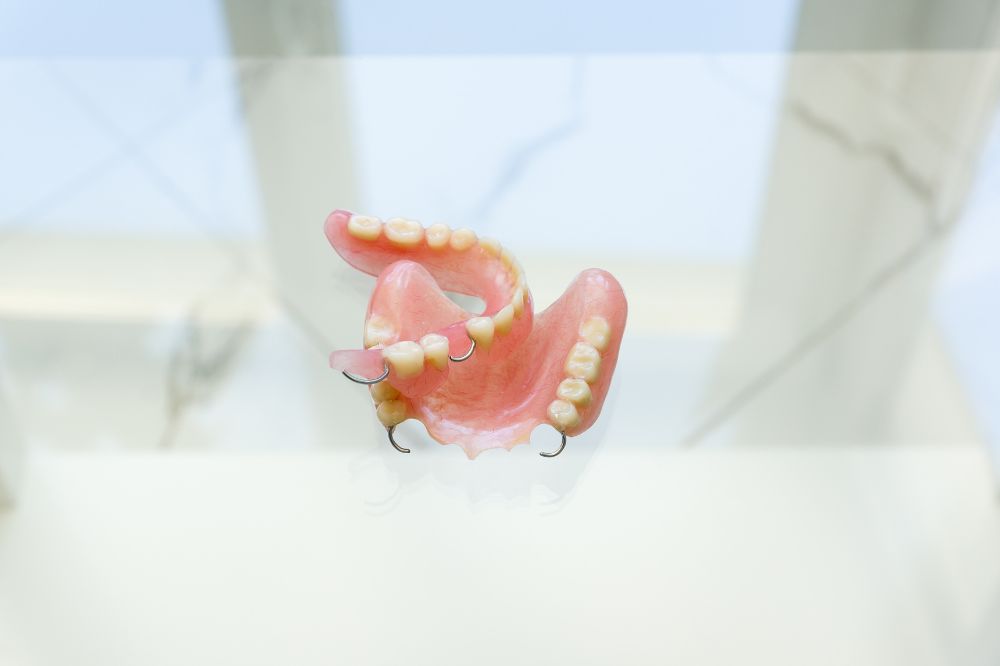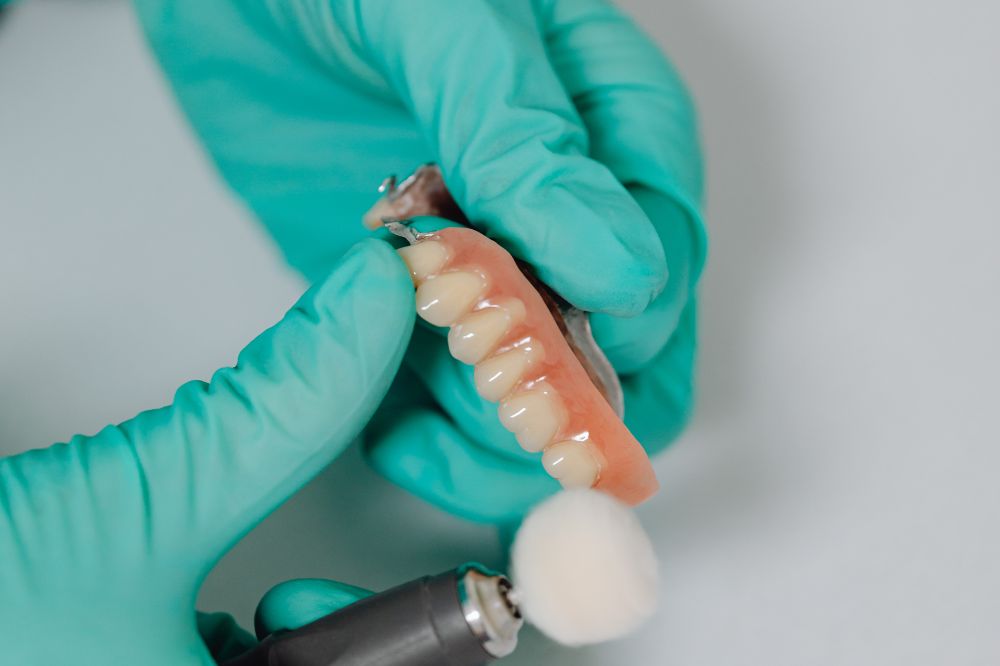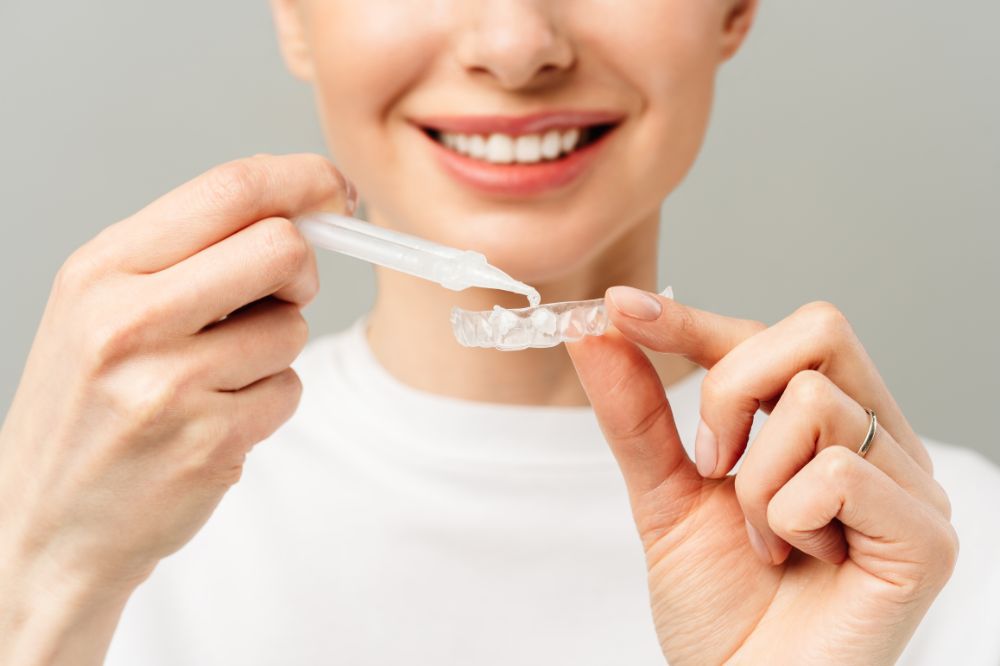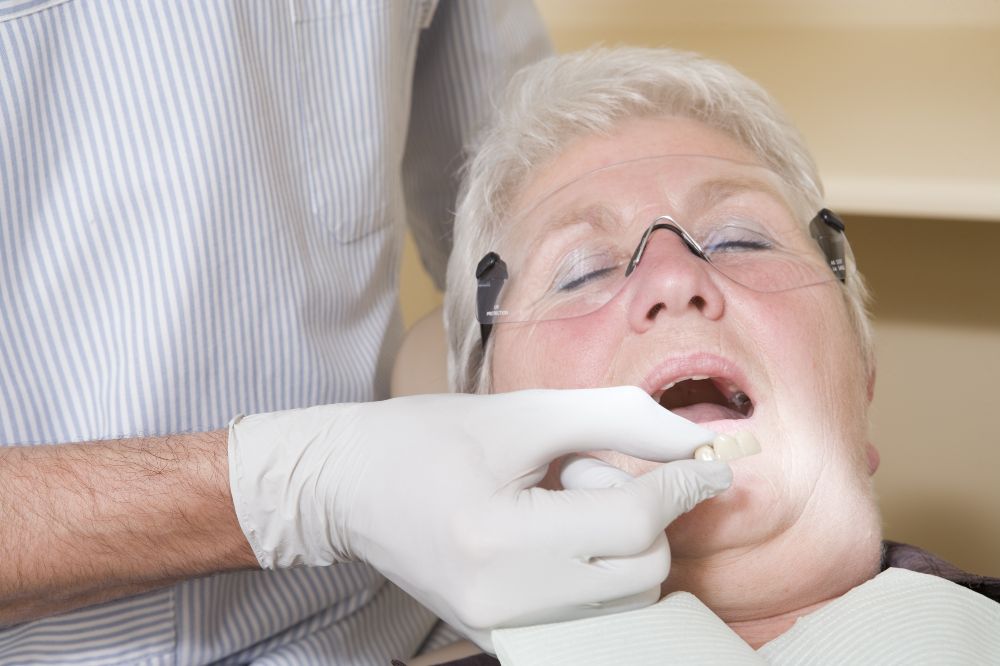Key Signs You Should Replace or Re‑line Your Dentures:
1. Loose or Ill‑Fitting Dentures
If your dentures slip, move when speaking or eating, or become unstable, this often reflects jawbone resorption and changing gum shape. Loose dentures increase sores and discomfort. It is a sign to replace your dentures.
2. Frequent Adjustments Required
If you’re visiting for shot‑in appointments to adjust your dentures often, it could be a sign that simple relining is no longer sufficient and denture replacement may be needed.
3. Visible Wear & Tear
Cracks, chips, thinning denture teeth, or discoloration affect chewing efficiency and aesthetics. If your denture teeth are worn smooth, it’s time for a new set.
4. Difficulty Chewing or Speaking
New struggles with chewing certain foods or slurred speech are indicators that bite alignment has shifted—or the fit is no longer correct. It is time to replace your dentures.
5. Discomfort, Sore Spots or Inflammation
Persistent gum pain, ulcers, or redness beneath dentures—especially if sores develop—is a warning sign of poor fit, trauma, or early denture stomatitis, and may require new dentures.
6. Facial Appearance Changes
Shrinking jawbone may cause facial collapse—if your dentures no longer support lip fullness or your bite height feels off, replacement might restore a more youthful appearance.
7. Age of the Dentures
Dentures over 5–7 years old—even if cared for—are likely past their optimal function. Booking a check-up once or twice a year helps catch issues early.
What Happens Next?
At Dentist‑Acton, we’ll assess your current dentures and oral tissues. Many cases can be saved with a reline or small adjustment, but when a replacement is recommended, we guide you through each step—from impressions to fitting again—all locally in Acton W3.
Timely attention prevents oral health issues like sores, infection, difficulty eating, poor nutrition, and bone loss. A well-fitting denture restores chewing, confidence, and facial aesthetics. In some cases, implant-supported dentures may be suggested for greater stability and longevity.
Protecting Your Investment
Proper daily cleaning and storage—never in boiling water—using non‑abrasive cleansers, soaking nightly, and avoiding continuous wear are essential habits. Using minimal adhesive (pea‑sized) and annual reviews ensure your dentures have their maximum lifespan.




